|
Cris Cohen: You've been part of this band for almost a decade now. I'm curious, how has being part of this band influenced your guitar playing? Kryz Reid of Third Eye Blind: It's an interesting question. I don't think I've ever been asked that before. Let me think. I think that Stephan has a producer's ear. So, as soon as we started to record together, the way Stephan talks about tone and talks about the style of guitar players… Like when Tom Morello hits a chord. We were rehearsing next door to the Chris Cornell tribute thing that was on a while ago. So, Tom Morello and all the Audioslave guys, they were all right next door. We could hear (guitar sounds). And it's just completely on. There's no way you could be like, "Who's that?" Even his tech checking his shit doesn't sound like Tom. So, Stephan kind of emboldened me with that idea. He was like, "When you play the guitar, I want people to know that it's you." So, the thing is, all of that is in your fingers. It's all very expressive. So, unbeknownst to me, I'm doing that. You know what I mean? But he definitely got me to think more about tone. Because I was always very kind of punk rock. I get a fucking Marshall 800 and... Am I allowed to curse on this? Cris Cohen: Yeah. Kryz Reid: I would just crank it and would be like, "Yeah, it sounds good." But we used to shoot out different amps, different guitars, different combinations of vintage amplifiers. We have all these photos of nine vintage amplifiers lined up with different microphones on them all. Playing the Strat and playing a '68 Strat and playing a fucking Jazzmaster. And then just going through all these different combinations. Because anything less than what we think is ideal compromises the tonality of the entire product. So, yeah, he's definitely made me a more disciplined guitar player. Cris Cohen: And as a result, do you notice minor changes now, more? Kryz Reid: Oh, yeah. I'll listen and I'll go, "We can hear the Stratocaster." You can hear the tonality difference between all those instruments, and the different tones that you'll get off like an AC30 versus a Marshall sound and stuff like that. So, I've learned on the gig, in that respect. Because before that, I was just always plugging in a fucking rocket. Download the full interview on PDF for free
Subscribe to the newsletter to have interview excerpts and e-books delivered to your email Michael McDermott, drummer for Joan Jett and the Blackhearts: You see it with the drum videos (some people) do. You're like, "How many times did you practice this song before you decided to record it? Sometimes you've got to practice it a couple more times."
But everybody's for the right now. Just slow down. It's not about how fast you can get that video out and uploaded and how many hits it gets. Learn the song. Love it. Really get into the tune and feel it. You can see when somebody is earnest about what they're doing. Cris Cohen: Working with artists as diverse as P!nk and Foreigner, what is the common denominator from your angle? Or to put it another way… how the hell is the same guy the right drummer for Velvet Revolver and Cher? Mark Schulman: I attribute my abilities to having grown up listening to a lot of music. And playing in bands very early on that played everything from bossa novas to Led Zeppelin to Black Sabbath to Foreigner. The joke when I got the Foreigner (gig) was that I was singing the same harmony part that I sang when I was in my band at 15. You'll find that most musicians who are very well rounded and have really been educated, have the ability to play a lot of different styles. It's having what I call “big ears,” so you're really listening. But it is also having the vocabulary and having the experience of having played different styles. And (it is) how you get along. For most of my gigs, I've been a hired gun. And it really comes down to, not only the way you play, but the way that you communicate, the way that you fit in, and the band member that you are. My nickname P!nk gave me years ago is “Disneyland: The happiest place on earth.” One of the things that drew her to me, in addition to my playing, was my ability to just be a light beam and bring that positivity. I look at my job as being of service. I'm in the service industry. And I know that a lot of musicians look at it that way. But when I get on stage, I'm there to be of service to P!nk, to the band, to the audience, to the crew. I want to make everybody's life easy. Robbie Wulfsohn: The way that I write songs… I'm kind of constantly turning out subject matter separate to music existing. And I won't actually build a framework around a song until there is a rhythmic backbone to it. I love rhythm. I love the ability to propel people with musical decisions and being able to do that with voice is just fun for me. So I wouldn't say that I'm choosing words specifically because of the way that they bounce, but I'm also not writing the song until there's something to bounce along with. So ideally one kind of feeds the other. Chris Fryar of the Zac Brown Band: I wasn't (playing drums) for the money. I wasn't doing it for anything other than feeding my soul. Because at the root of it all, I'm a musician. It's what I do. I want to make music with other musicians and other likeminded people. If you do it for money, you're sunk out of the gate. Because the reality is there are not that many huge gigs out there. Compared to the number of drummers there are available to do them. And so if you're in it for the money and fame and all that other fun stuff, you might be disappointed. But if you do it because you love to do it and you would do it for free, then you might be a lot happier. And then when things pan out, if they do, it's icing on the cake. It's gravy on the potatoes, baby. Cris Cohen: Well, that makes me wonder though. How does one do it so you don't get taken advantage of. Because there are a lot of guys who play for the passion and they'll do some horrendous gigs and people will take advantage of them. “We can't pay you, but it'll be great exposure.” Chris Fryar: In my opinion, you have to just figure that out. Everyone has their limit. Everyone has their line. For me, it was making sure that I didn't have to pay anything for gas and I didn't have to buy food. As long as I'm breaking even in that regard, I'll go play. I used to tell people all the time that I played for free, but getting me to move my gear is expensive. I love to play. I love to make music. When I was freelancing in Birmingham, I would play anything. I was doing like a singer-songwriter thing on a Tuesday night for 20 bucks. Just a kick drum, snare drum, tambourine. Sometimes not even the snare drum. I would tell guys around town, “Hey, let me sub for you. You got a steady gig. I don't want to steal your gig, but you've got a wife and kids and life is going to happen. Call me when life happens. Let me cover for you for a night.” You would be surprised how much work I got just doing that. Download the free PDF e-book of the full interview with Chris Fryar Subscribe to the newsletter and get this content delivered to your email
Joey Dandeneau of Theory of a Deadman: It's a personal thing. Each drummer talks through their drums differently. I'm not super outgoing. I'm not loud. When I speak to people, I'm kind of to the point. I don't really have a lot of crap to say. I just say what I need to say and then I'm done. And I feel like my drumming is the same way.
-- Full interview [Interview excerpt. Download the full e-book (pdf) for free at http://bandstofans.fetchapp.com/permalink/a0dbe0]
Cris Cohen: There is this particular lyric that I loved in the song “Let Me Down Easy" where it says, "I can't find the missing pages from my life," which, everyone I talk to, that pretty much sums up their experience with 2020. There's this feeling… they were headed for stuff. They had plans for stuff. There were some good things on the horizon. And then it all got ripped away. And the band Candlebox itself has had its own ups and downs, but you've continued to endure. From your perspective as a musician, what's your secret to persistence? Because I think that's key for a lot of people right now. Kevin Martin of Candlebox: It's financial (laughs). No. I think the key to my persistence really is just that I love what I do. When I was a kid, this was all I could dream about. I mean, what sold it for me was my first KISS record. It's seeing these larger-than-life creatures. I was five years old and I was like, "What is this? This is the most amazing thing." It's like you're getting your first comic book or something. So, I knew that it's what I always wanted to do. And I also know that I have something to say. Whether or not it's right or wrong, it's certainly just my opinion. But I have found that certain things that I speak about resonate with my flock, if you will. I feel sometimes I am a bit preachy, but I think that that comes from being raised by a father who was born in 1922 and stormed Omaha Beach on June 6th of 1944, and married my mother after six months in 1959. And they were married for 45 years until my father passed away at the ripe old age of 81. My dad spoke to me every day about life and the importance of relationships, and respect, caring, understanding, empathy, and all these great things. So, I feel that, maybe what my father taught me, I'm passing on to my extended family. That's kind of what keeps me motivated. Now available! Download the free e-book "An Interview with Kevin Martin of Candlebox".
We discussed: - Their new song, “Let Me Down Easy” - Co-writing with Pete Cornell - Their cover of “For What It’s Worth” - “There is darkness in enlightenment” - Persistence - How initially being a drummer influenced his songwriting - Being a reluctant singer - Breadmaking - And more Thanks for the shoutout during the interview, Rich Redmond. So glad this came together. What a fun conversation to watch. |
Archives
June 2024
|
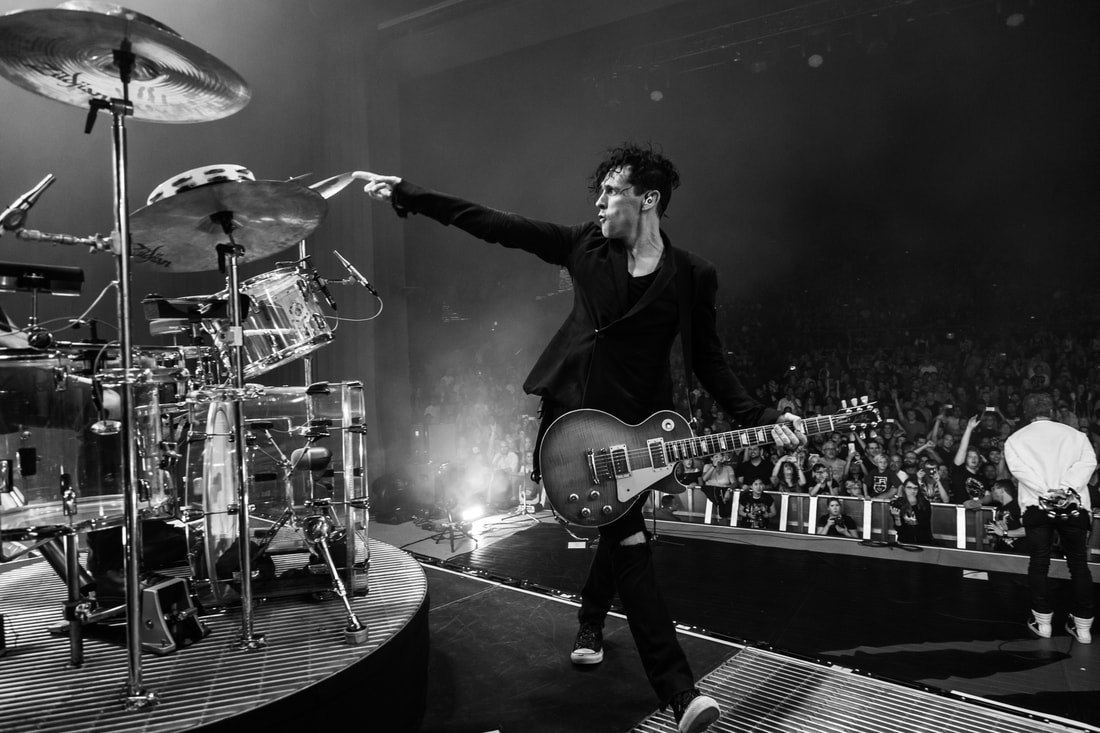
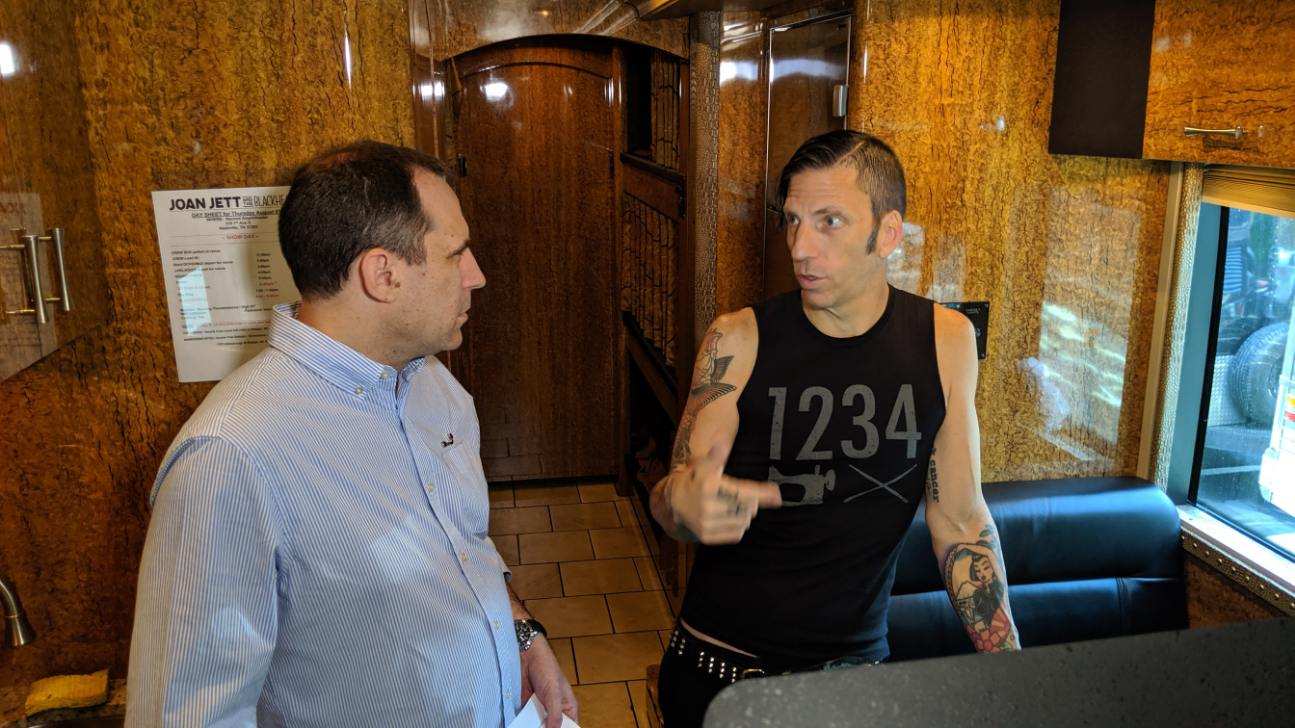


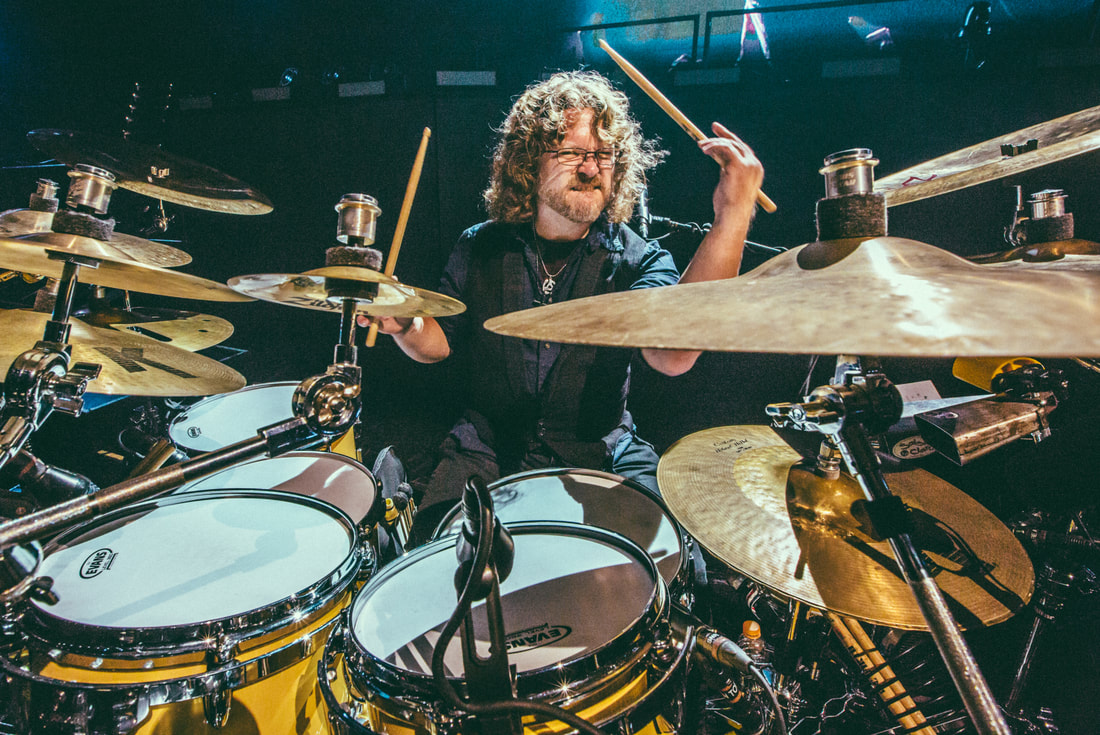

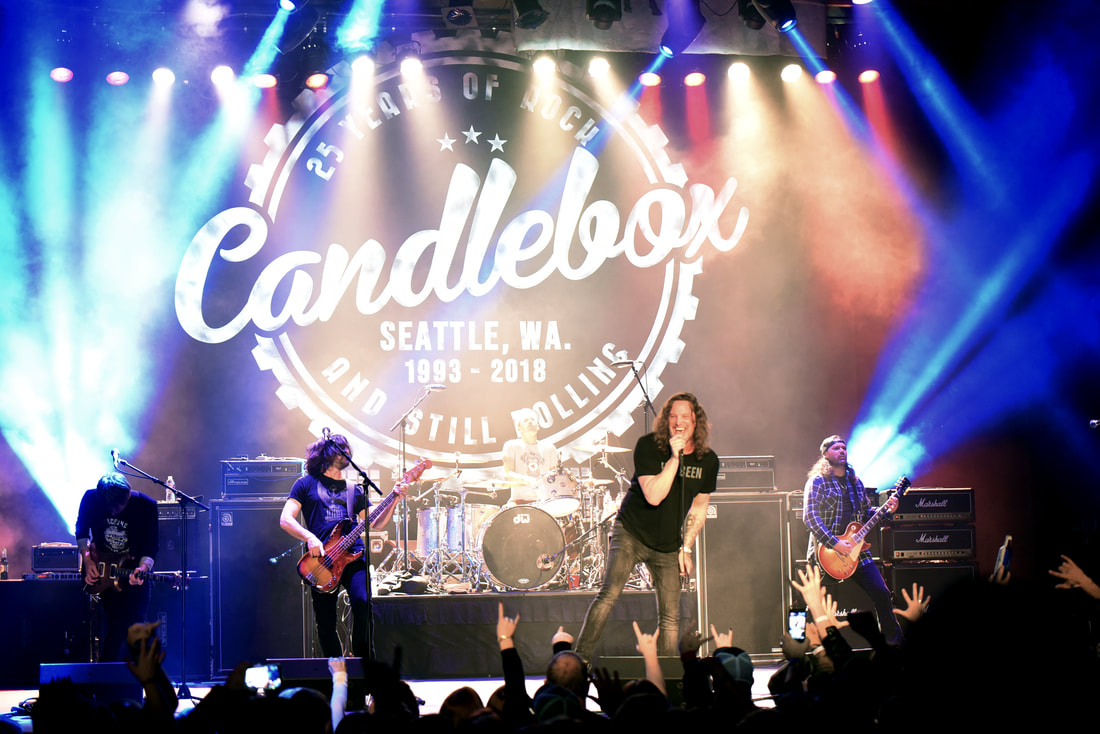
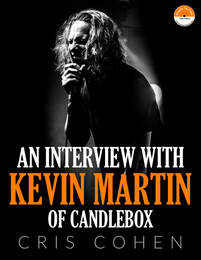

 RSS Feed
RSS Feed